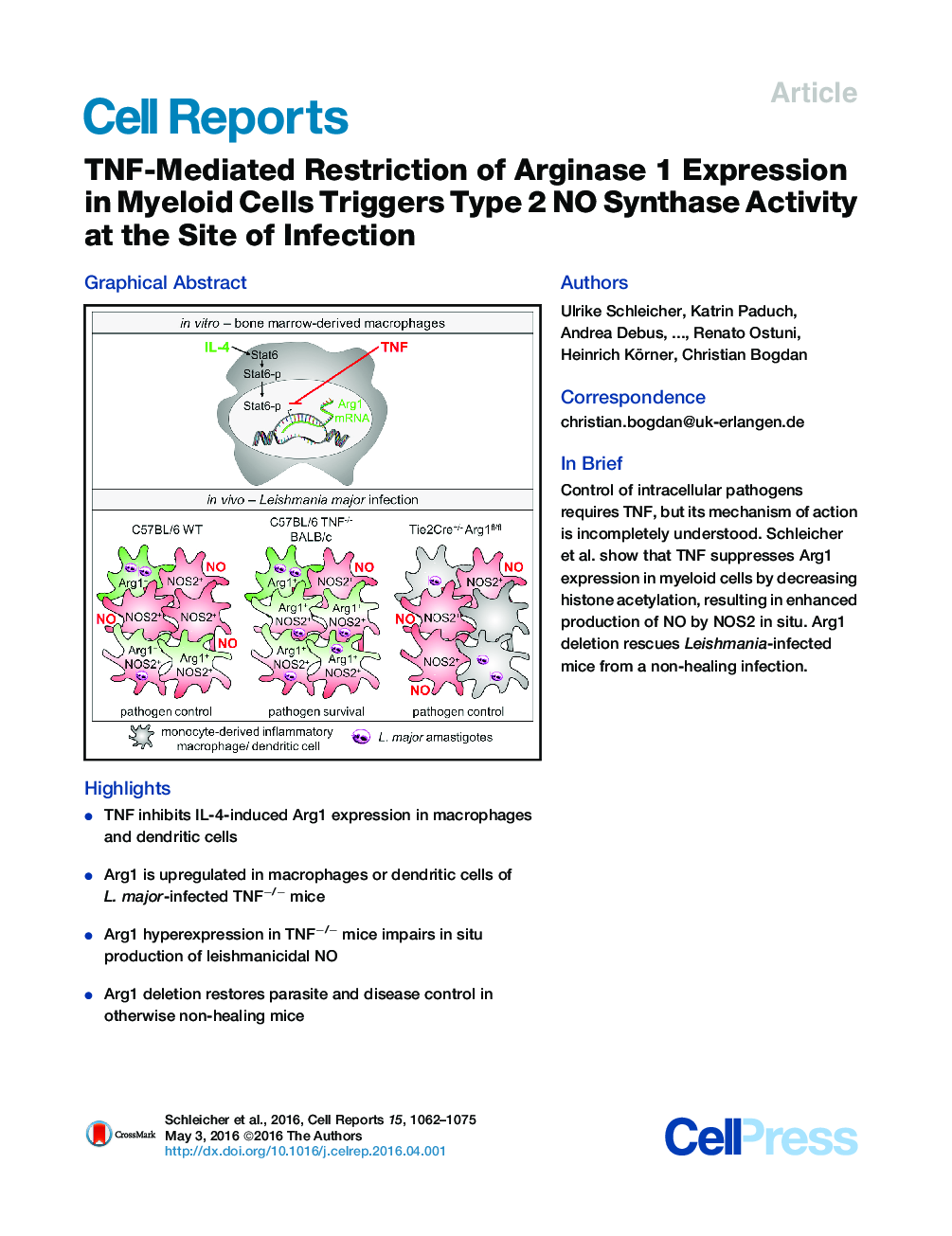| Article ID | Journal | Published Year | Pages | File Type |
|---|---|---|---|---|
| 2039793 | Cell Reports | 2016 | 14 Pages |
•TNF inhibits IL-4-induced Arg1 expression in macrophages and dendritic cells•Arg1 is upregulated in macrophages or dendritic cells of L. major-infected TNF−/− mice•Arg1 hyperexpression in TNF−/− mice impairs in situ production of leishmanicidal NO•Arg1 deletion restores parasite and disease control in otherwise non-healing mice
SummaryNeutralization or deletion of tumor necrosis factor (TNF) causes loss of control of intracellular pathogens in mice and humans, but the underlying mechanisms are incompletely understood. Here, we found that TNF antagonized alternative activation of macrophages and dendritic cells by IL-4. TNF inhibited IL-4-induced arginase 1 (Arg1) expression by decreasing histone acetylation, without affecting STAT6 phosphorylation and nuclear translocation. In Leishmania major-infected C57BL/6 wild-type mice, type 2 nitric oxide (NO) synthase (NOS2) was detected in inflammatory dendritic cells or macrophages, some of which co-expressed Arg1. In TNF-deficient mice, Arg1 was hyperexpressed, causing an impaired production of NO in situ. A similar phenotype was seen in L. major-infected BALB/c mice. Arg1 deletion in hematopoietic cells protected these mice from an otherwise lethal disease, although their disease-mediating T cell response (Th2, Treg) was maintained. Thus, deletion or TNF-mediated restriction of Arg1 unleashes the production of NO by NOS2, which is critical for pathogen control.
Graphical AbstractFigure optionsDownload full-size imageDownload as PowerPoint slide
